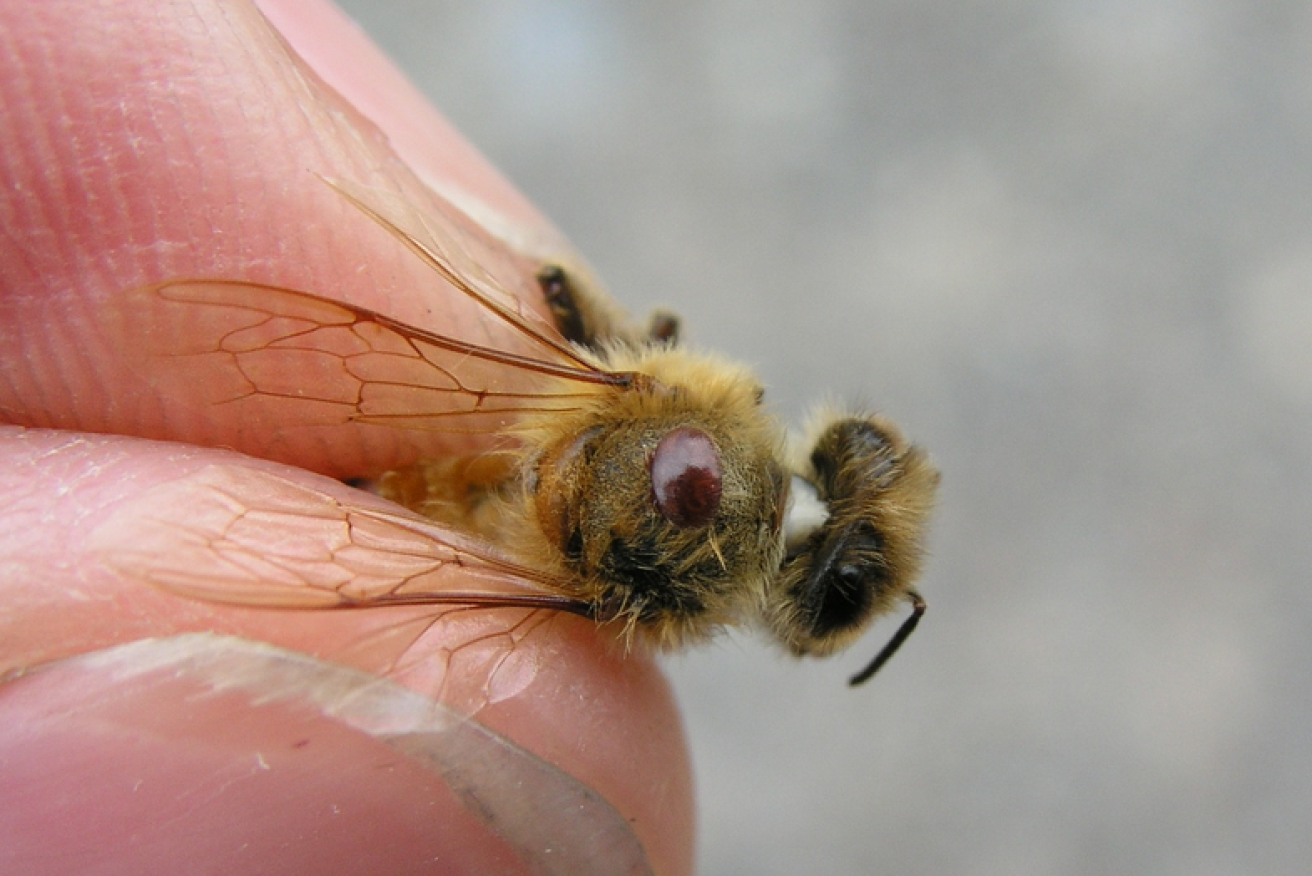Close call for Australian agriculture as voracious bee killer found on ship in Melbourne


A seemingly insignificant brown spot on the bee's back, the varroa mite is a deadly threat to hives and agriculture. Photo: WA Agriculture Dept
Australia’s agricultural industries have had a close call after a blood-sucking parasite which weakens and kills bee colonies was discovered aboard a cargo ship as it docked in Melbourne.
The presence of the varroa mite came to light when crew members on the ship noticed dead bees on the deck and alerted Australian authorities on Wednesday.
The voracious mite has decimated hives in the US, in some cases shrinking the number of colonies by 30 per cent.
In New Zealand and Europe the mortality rate has been even worse, killing off as many as 90 per cent of commercial hives.
The infected hive was discovered inside a wooden crate and prompted a massive blitz by agriculture authorities and extermination teams.
Authorities draped the quarantined section of the ship in fine netting to trap any escapees and set up so-called “sentinel hives” within a two-mile radius of the port.
These will be inspected to make sure no mites have infected local colonies
Agriculture Victoria chief health plant officer Nigel Ainsworth said it was lucky the stowaway colony arrived in the depths of a frigid Melbourne winter, as cold temperatures inhibit bees leaving the hive and make it “pretty unlikely” any infected insects escaped.
“Should it become established in this country, it will be a major problem to commercial and hobby beekeepers,” an Agriculture Victoria statement said.
“In Australia, the spread of varroa is expected to be fast over long distances because of the migratory nature of the beekeeping industry.”
Apiarists move their hives great distances to exploit flowering plants and crops, which the bees pollinate while collecting nectar.
The mites do not spread in honey, instead crossing between adult bees.
Australian Honey Bee Industry Council chairman Lindsay Bourke told the ABC the industry was “very concerned” about the detection.
“We are on the lookout for this all the time,” he said.
“The only thing in our advantage is that it arrived in Victoria, because Victorians are the most proactive in this department.”
-with AAP








